LOCKDOWN pressed the pause button on 67million lives.
On Tuesday it will be exactly one year since Prime Minister Boris Johnson appeared on national television to instruct us to “stay at home, protect our NHS and save lives”.

Read our coronavirus live blog for the latest news & updates…
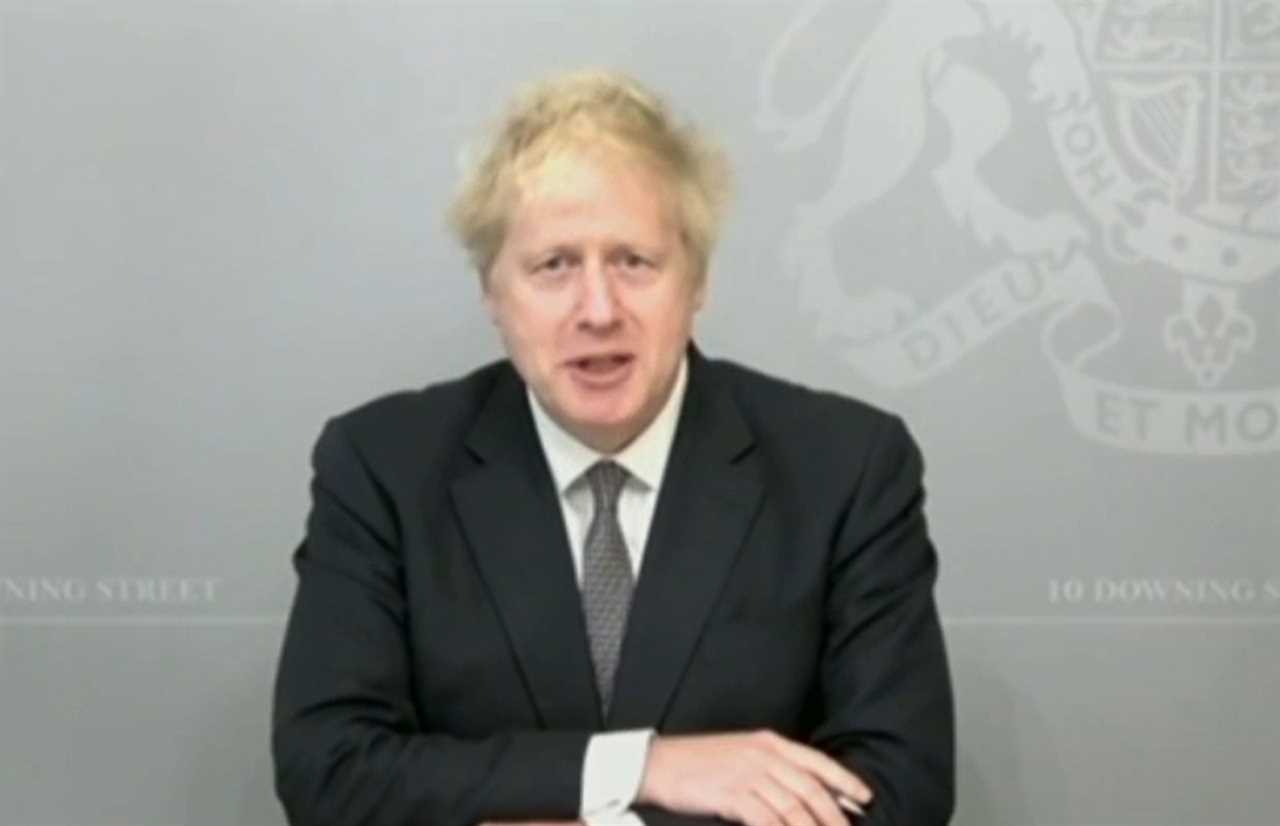
And we did. In the name of the greater good, in the cause of suppressing the deadly virus that roared out of China and quickly spread across the world, a nation that had not been invaded for 1,000 years surrendered its liberty — without complaint, for the most part.
The outside world — the normal life we took for granted of schools, offices, pubs, cafes, restaurants, airports, hair salons, shops and football stadiums — was suddenly as distant as Narnia.
Normal life retreated into the home — work and play, education and exercise, haircuts and shopping, and some of it will never return to the fresh air.
The way we were has gone for ever.
What nobody ever imagined one year ago, not Boris, not his boffins, none of us, was that lockdown would last for so long.
Those of us born since 1945 had no experience of our lives being ripped and riven by great global events that were far beyond our control. We do now.
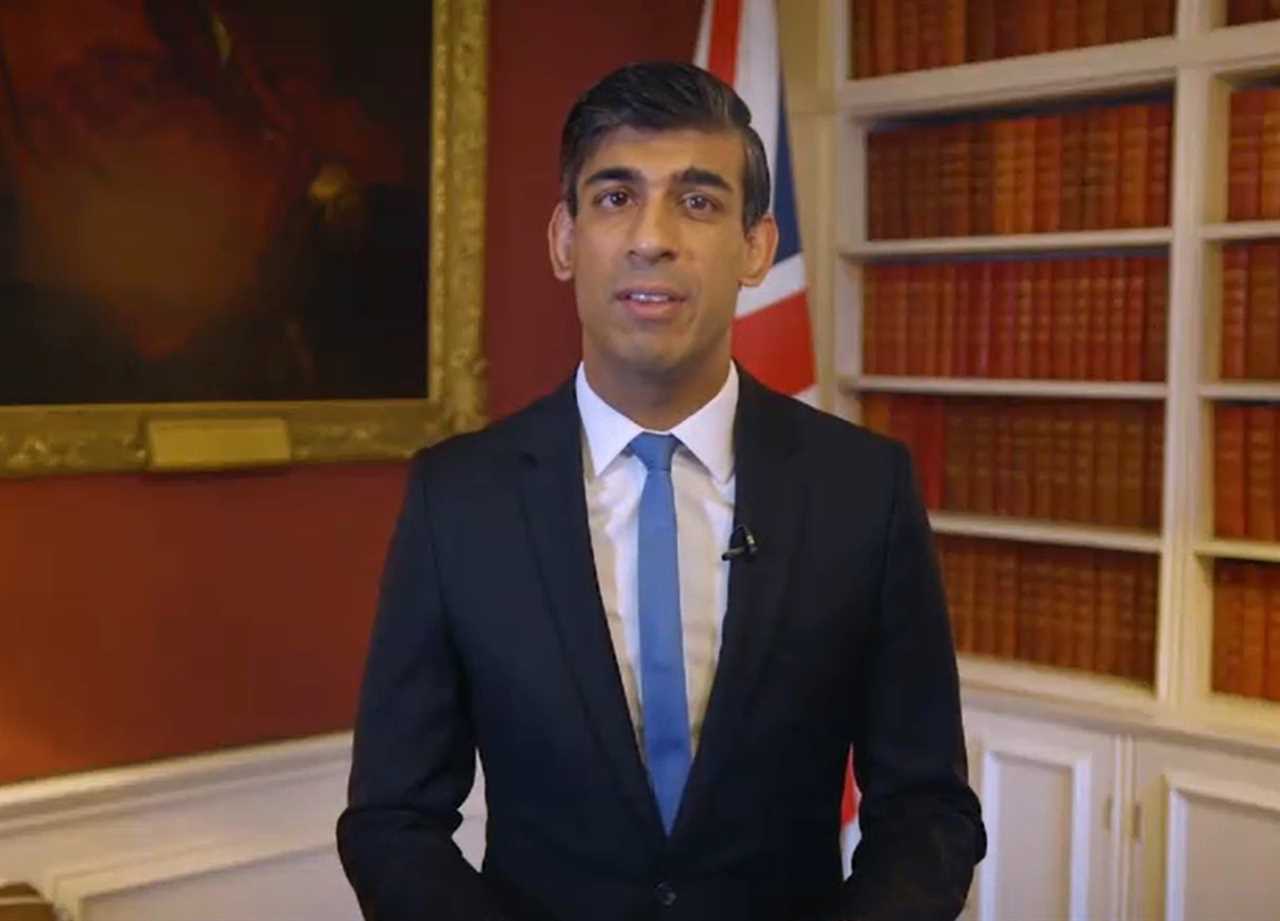
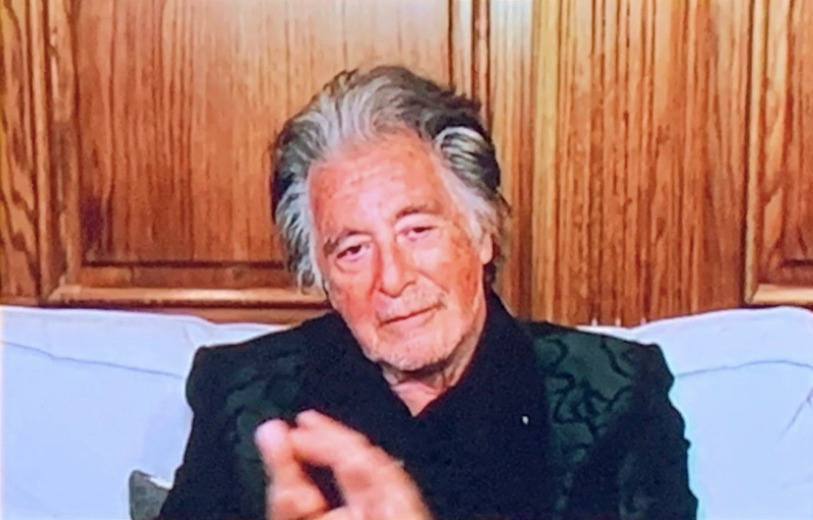
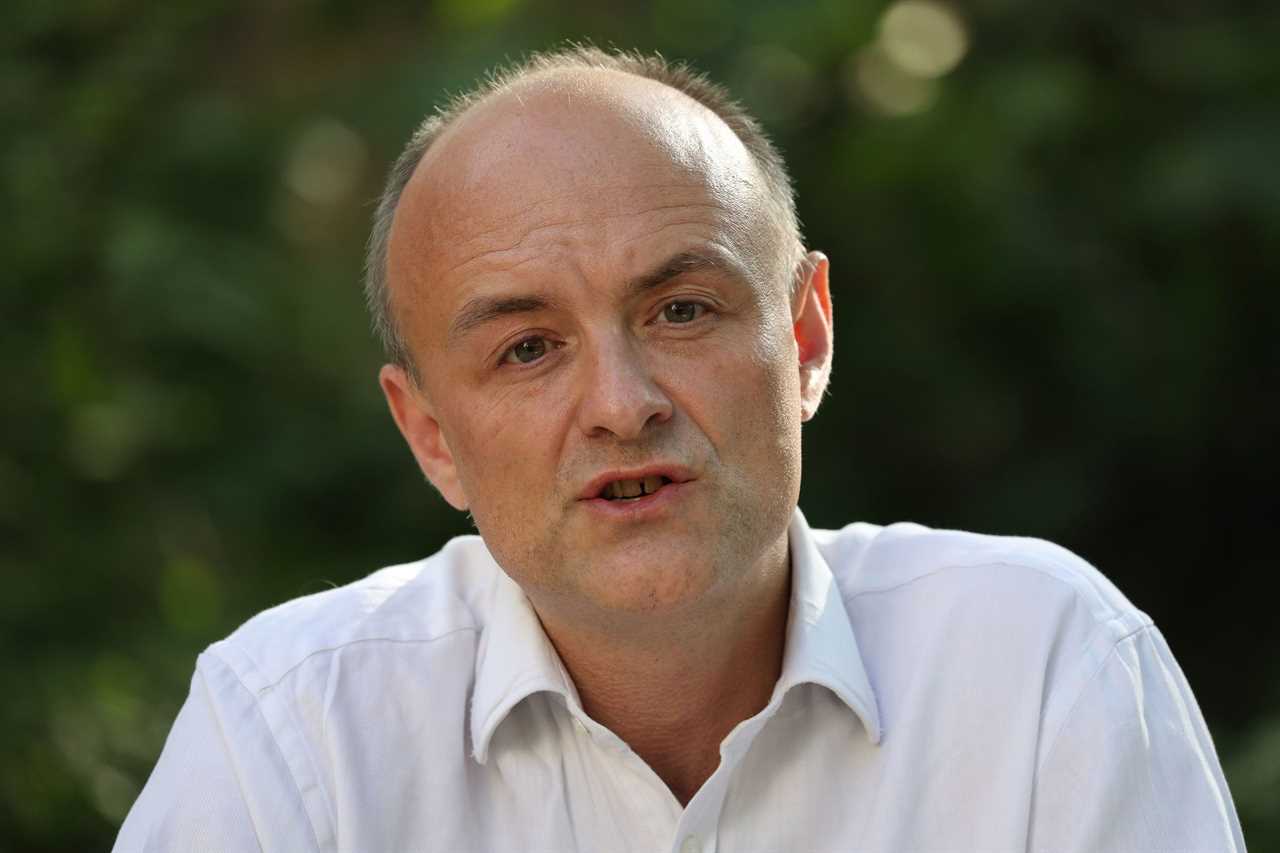
It is a year since our lives were put on hold.
The fitful returns to something like normality over last summer, or for a shorter period in autumn, when you could briefly go to the gym or get a haircut or share a meal with friends, proved agonisingly fleeting.
Chancellor Rishi Sunak’s Eat Out To Help Out campaign of last August was enormously popular but then instantly regretted and blamed by some for a new spike in cases.
Like Michael Corleone trying to go straight in The Godfather, every time we tried to get out of lockdown, it dragged us back in.
We have all had a year of our lives cancelled. And for many of our people, the past year has been the hardest of their lives.
It has been a lost year for the young, who have seen their education interrupted and life-defining exams cancelled two years in a row.
BRUTALLY STRICT
A lost year for the old, who have been separated from their loved ones, sometimes in care homes, where Covid-19 ran rampant, and even when they were buried at socially distanced funerals.
Lockdown rules were brutally strict. Sometimes it felt like East Germany, where the lockdown Stasi loved flexing their powers.
Even the bereaved were subject to rules on social distancing, even when their hearts were being ripped out with grief.
At his father’s socially-distanced funeral in Milton Keynes, Paul Bicknell moved his chair closer to his grieving mother to give her a hug and was pounced on by a council official, who separated mother and son.
The rules were obeyed and those who strayed, like Dominic Cummings — the PM’s Yoda — were vilified.
But the rules could seem cruel beyond belief.
It has been a lost year for businesses that took a lifetime to build and then were shuttered and starved of revenue for so long.
A year when entire industries were mothballed — airlines, cinemas, restaurants, pubs, “non-essential” shops which are never “non-essential” to the people who work there.
Millions of jobs were placed in deep freeze, economic uncertainty was everywhere, no matter how many times Rishi Sunak shook the magic money tree, and nobody can say with total certainty which jobs will remain when the lights come on again.
At the beginning we suffered from a collective delusion that lockdown would soon be over.
Boris Johnson is chastised for not taking the virus seriously enough, early enough. But didn’t we all feel the same?
When lockdown began we were like the absurdly optimistic generation who believed World War One would be all over by Christmas 1914.
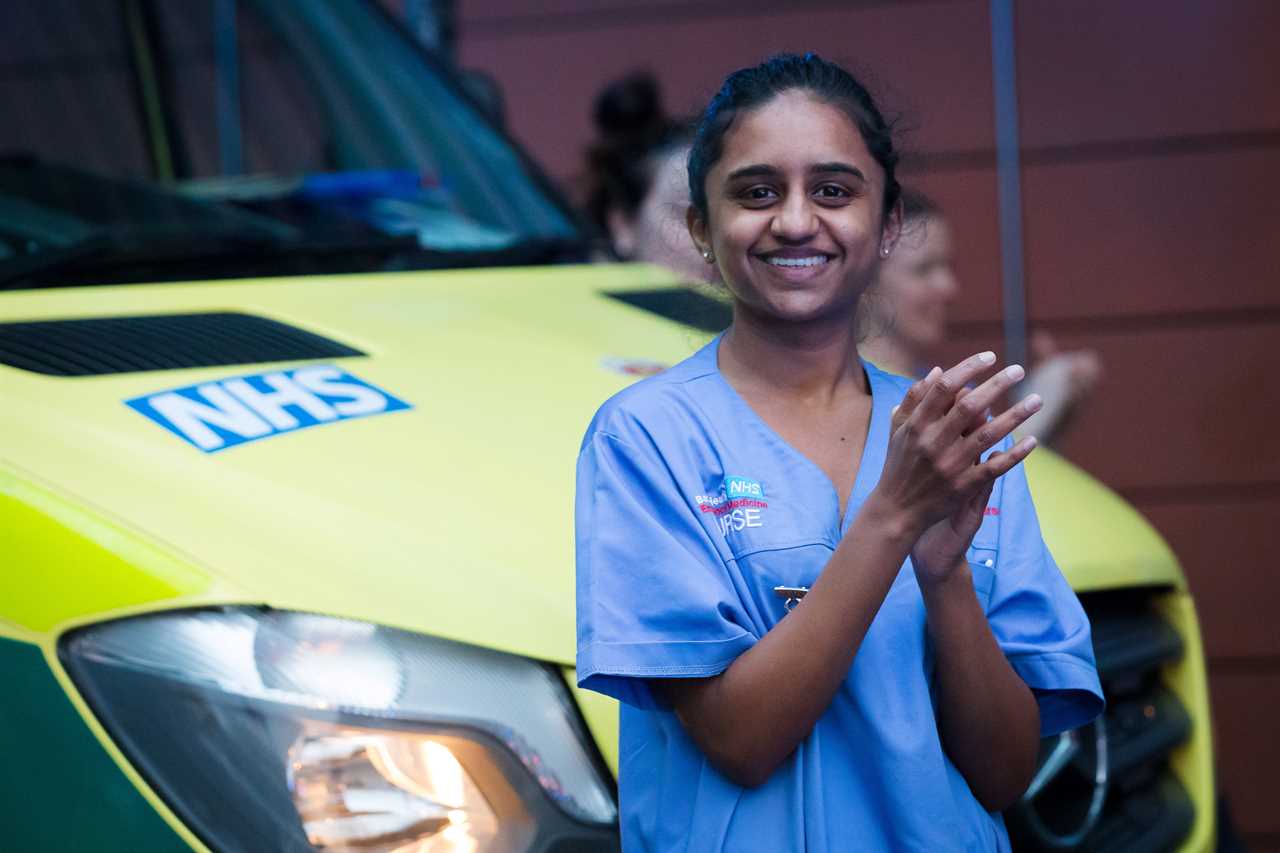
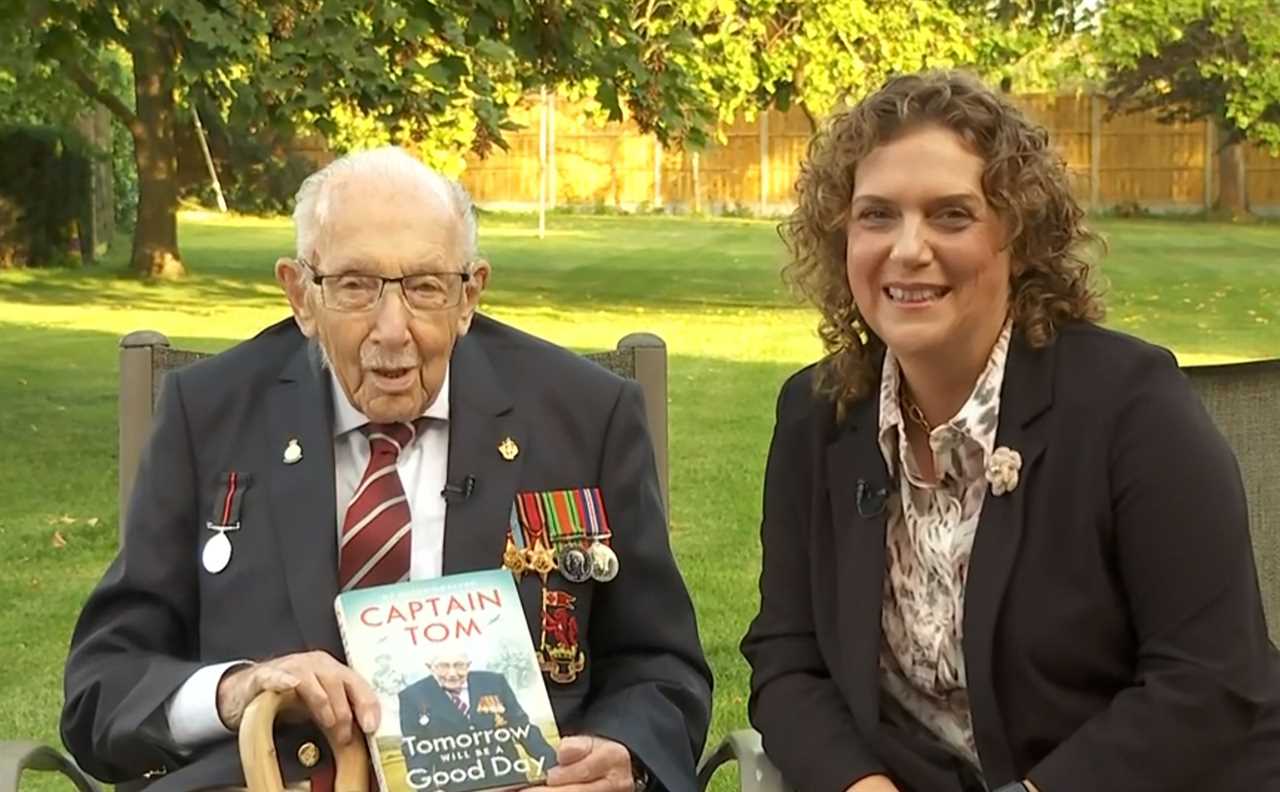
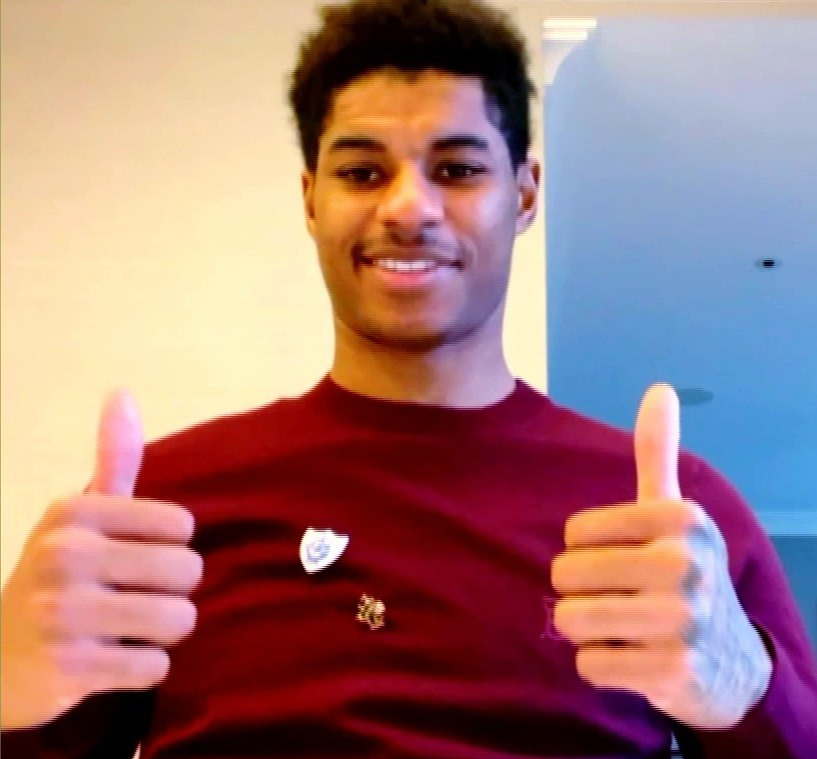
We just could not comprehend that so much of our lives — all the things that make them worth living — could be stolen away from us for so long.
But we soon came to understand that this was an historic emergency. And we were fighting for our lives.
Just three days after telling us to stay home, Boris tested positive for coronavirus. By the start of April he was in an intensive care unit, his life in the balance.
His closest allies deny it now, but Boris came out of hospital changed by his near-death experience, with a greater commitment to lockdown, whatever the cost.
And when the final reckoning is made, the bill for lockdown will be tragically high.
Beyond the toll of coronavirus itself — 126,000 dead and more than four million cases — lockdown has caused a parallel health crisis.
TERRIBLE PRICE
Figures released this week by the Institute for Public Policy Research reveal there were 31million fewer GP appointments over the past year — people who did not want to be a burden on the NHS, or were afraid of catching coronavirus during treatment, or who simply couldn’t get an appointment.
Consequently, this year there are expected to be an extra 4,500 cancer deaths and an extra 12,000 heart attacks in the next five years — all of them “attributable to disruption caused by the pandemic”.
Lockdown came at a terrible price.
Covid-19 was not a war — although in the UK it has claimed around triple the number who died in The Blitz.
Yet like a war, we will be counting the true cost for years.
Money is the least of it. Disability, disease, mental health problems, all will surge because of the lockdown we needed to fight this pandemic.
In the year of lockdown we learned what real heroism looks like.
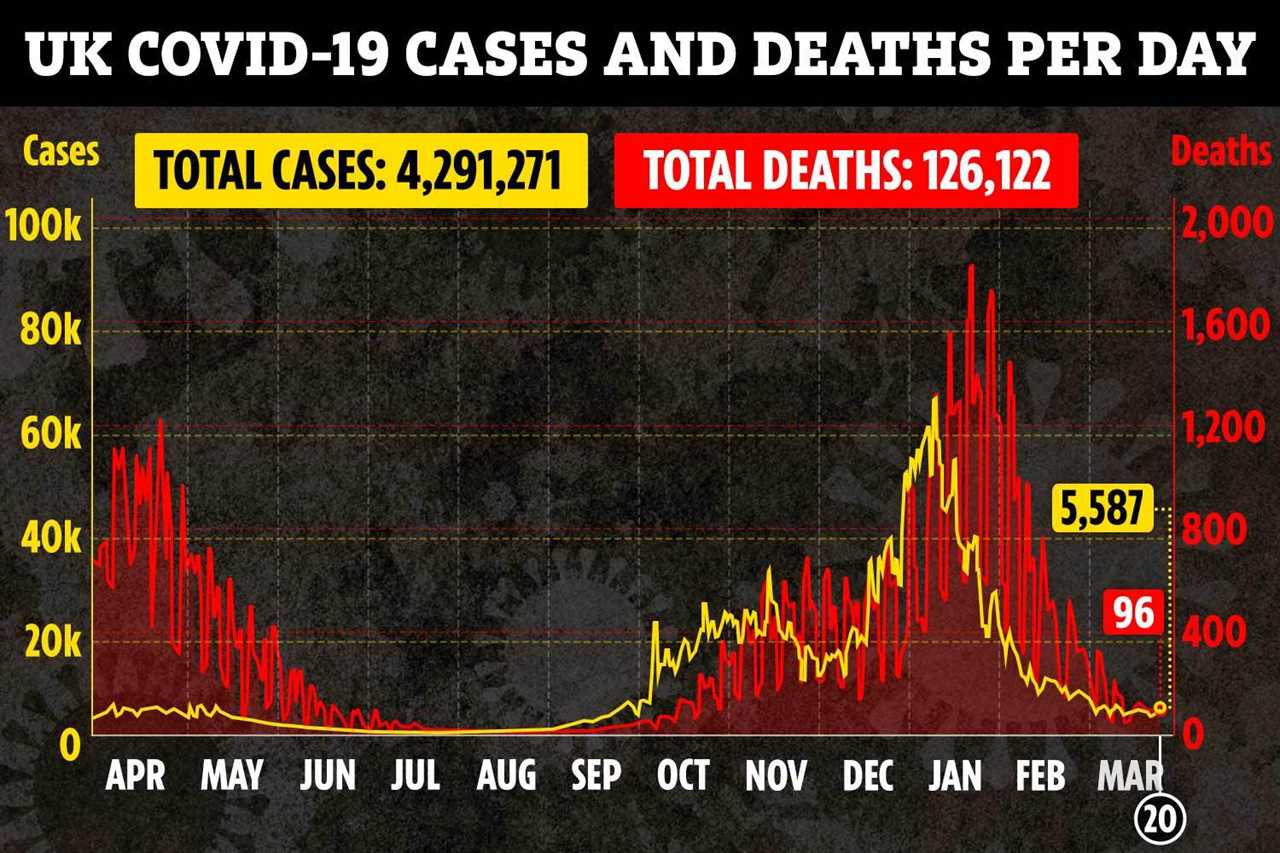
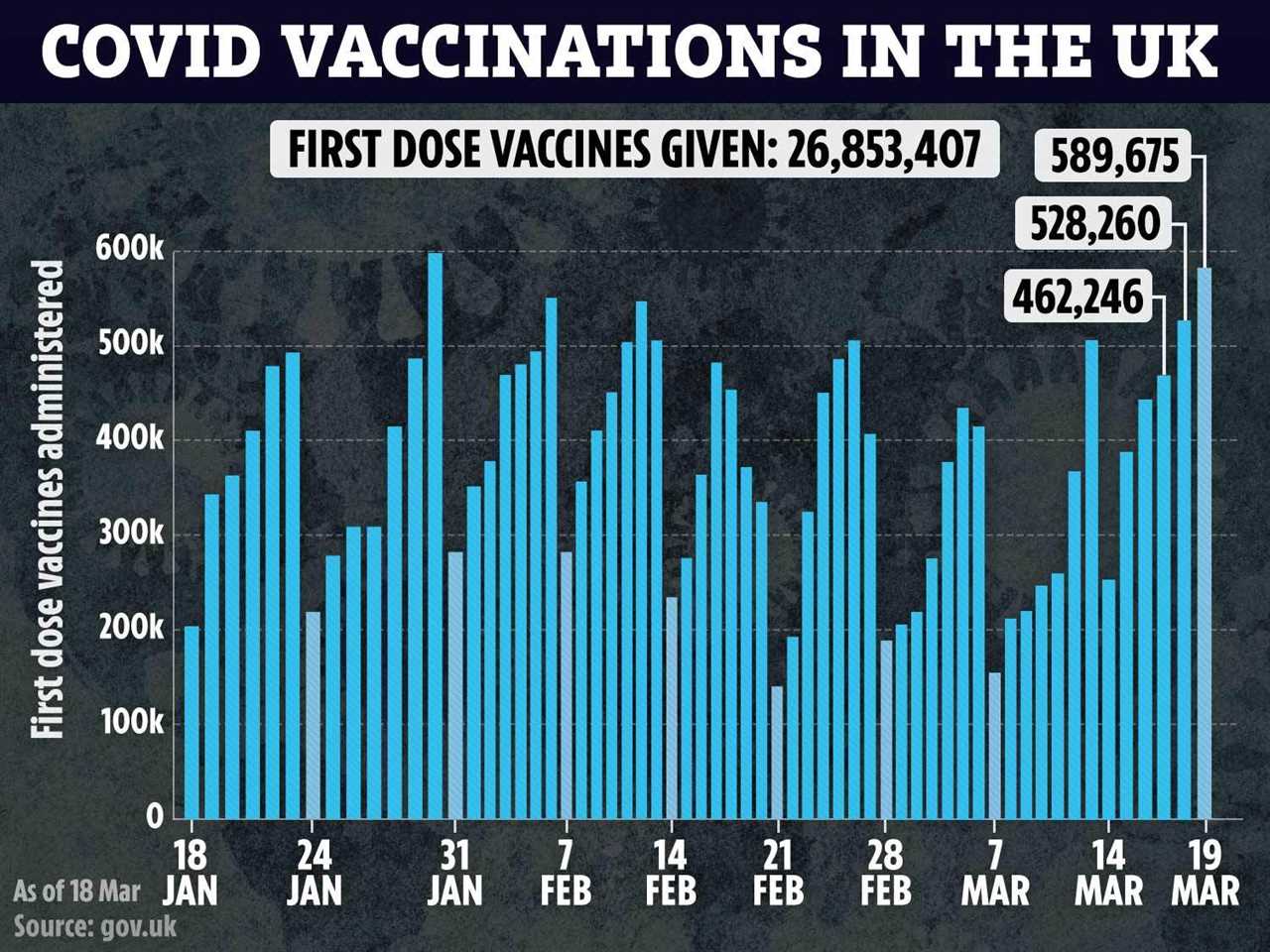
On the sun-dappled Thursday nights of spring and summer we applauded the frontline workers of the NHS at 8pm sharp.
An old soldier called Tom Moore raised £33million for the NHS by walking in his garden at the age of 99.
Manchester United’s Marcus Rashford had never forgotten the free school meals he received as a child and joined forces with the charity FareShare to ensure that no child in the country went hungry during lockdown.
“Covidiots” was the lockdown term for those selfish souls who flouted the rules, not least the pampered Premier League footballers who thought that “essential work” included flying off to Dubai, partying all night or having a few escorts round.
Instagram influencers were also serial Dubai-bound Covidiots, but they had no Marcus Rashford in their midst to rescue the reputation of their dubious trade.
It was a year when we needed a different kind of celebrity.
The 5pm briefings at Downing Street produced the unlikeliest of stars in England’s chief medical officer Professor Chris Whitty, affectionately known as “the talking turtle”, and his plain-speaking deputy Professor Jonathan Van-Tam.
Boris’s boffins became a familiar sight on our TV screens and although it sometimes felt as if they saw only the science of defeating Covid-19, you never doubted that they were speaking from a lifetime of knowledge.
Experts were widely derided during the Brexit debate. But we needed them now.
Not every lockdown hero was feted but their quiet courage was just as real.
Bus drivers, white van men and women, the bin men, the lorry drivers.
Despite isolated bouts of panic-buying during our year of lockdown, the shelves remained remarkably well stocked and the rubbish never piled up in the streets.

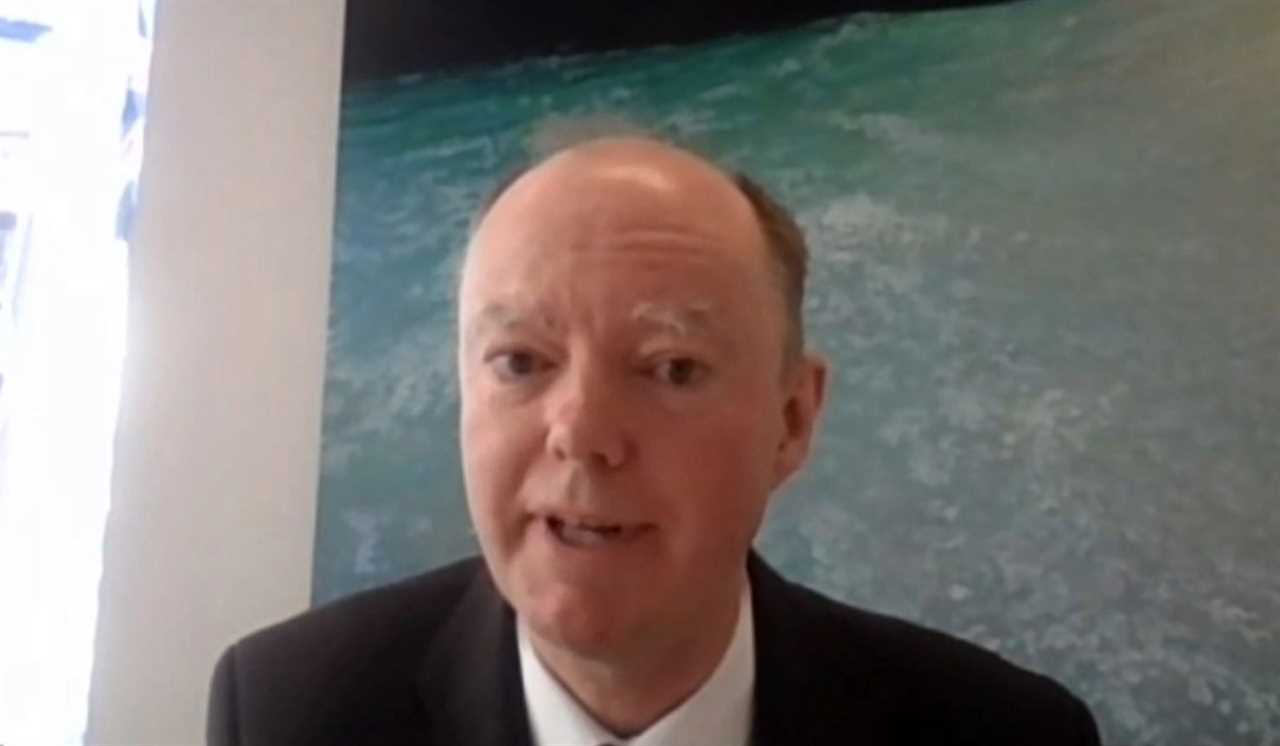
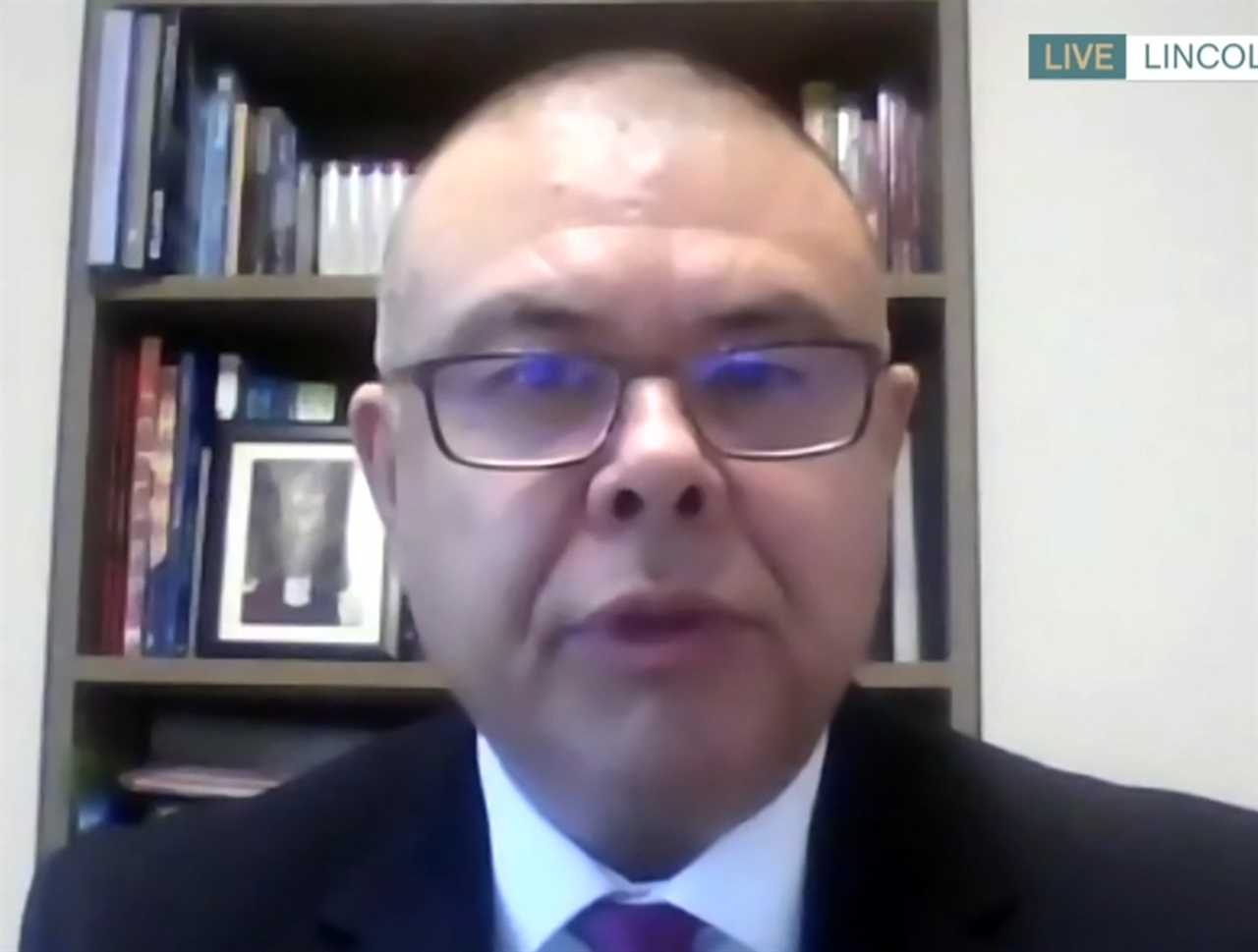
That was thanks to the drivers who never stopped grafting, and who all deserve our thanks.
After the years of toxic divide over Brexit, during lockdown it felt like we were finally coming together again as a nation.
The Queen did more to foster the spirit of unity than anyone. In April she spoke for just four minutes but gave a moving, word-perfect speech to a nation in lockdown.
But despite the national unity that only comes in a crisis, it would not be true to say we were all in lockdown together.
There was a coronavirus apartheid in the working world, a divide between those who could work from home and those who could not.
Liberated by Zoom, Skype and FaceTime, and spared the miseries and expense of the daily commute, most office workers had a comfortable lockdown.
CASH VANISHED
Long after lockdown has ended, hybrid working patterns, mixing up working from home and the office, will remain.
Other changes that were already happening were massively accelerated.
During lockdown, the use of cash vanished overnight. The decline of every high street was hastened by the dominance of Amazon.
Lockdown obliged us to live our lives online. From the weekly shop, to tonight’s pizza, to your new car, there’s not much that you can’t have delivered to your door.
The world will not be as it was before.
We will get used to face-masks, stock up on hand sanitiser, cut back on social kissing, manly hugs and firm handshakes.
Social distancing is not going to disappear soon, no matter how much we may wish it.
What does that mean for the way we live our lives? When will we, and the world, be safe enough to pack 60,000 people together in a stadium?
Despite optimistic talk about letting in an unspecified number of fans for the last day of the Premier League season, May 23, getting back to where we used to be seems impossibly distant.
The last time the Rolling Stones toured I went to three London shows. I struggle to believe I will ever see Mick and Keith live again.
And how bloodless the football seemed in those empty stadia. How drained of joy, passion and meaning.
I find myself watching the matches with the crowd soundtrack turned on, because fake passion is better than no passion at all.
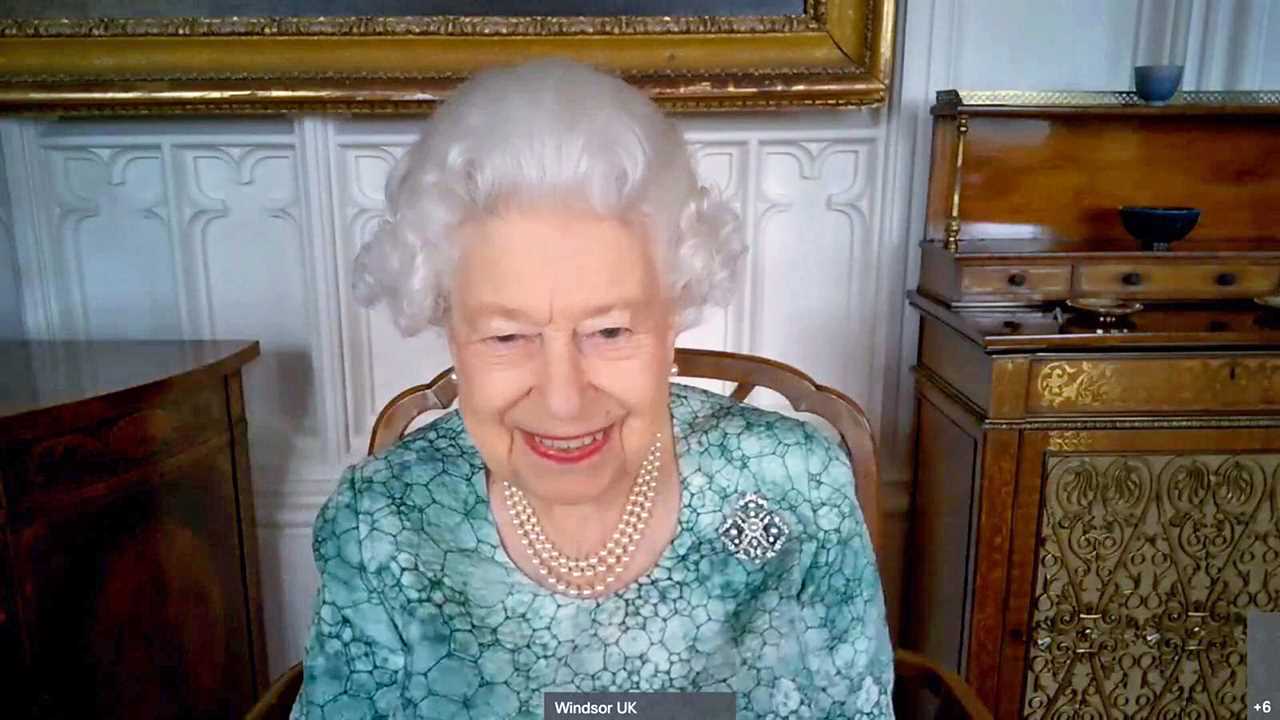
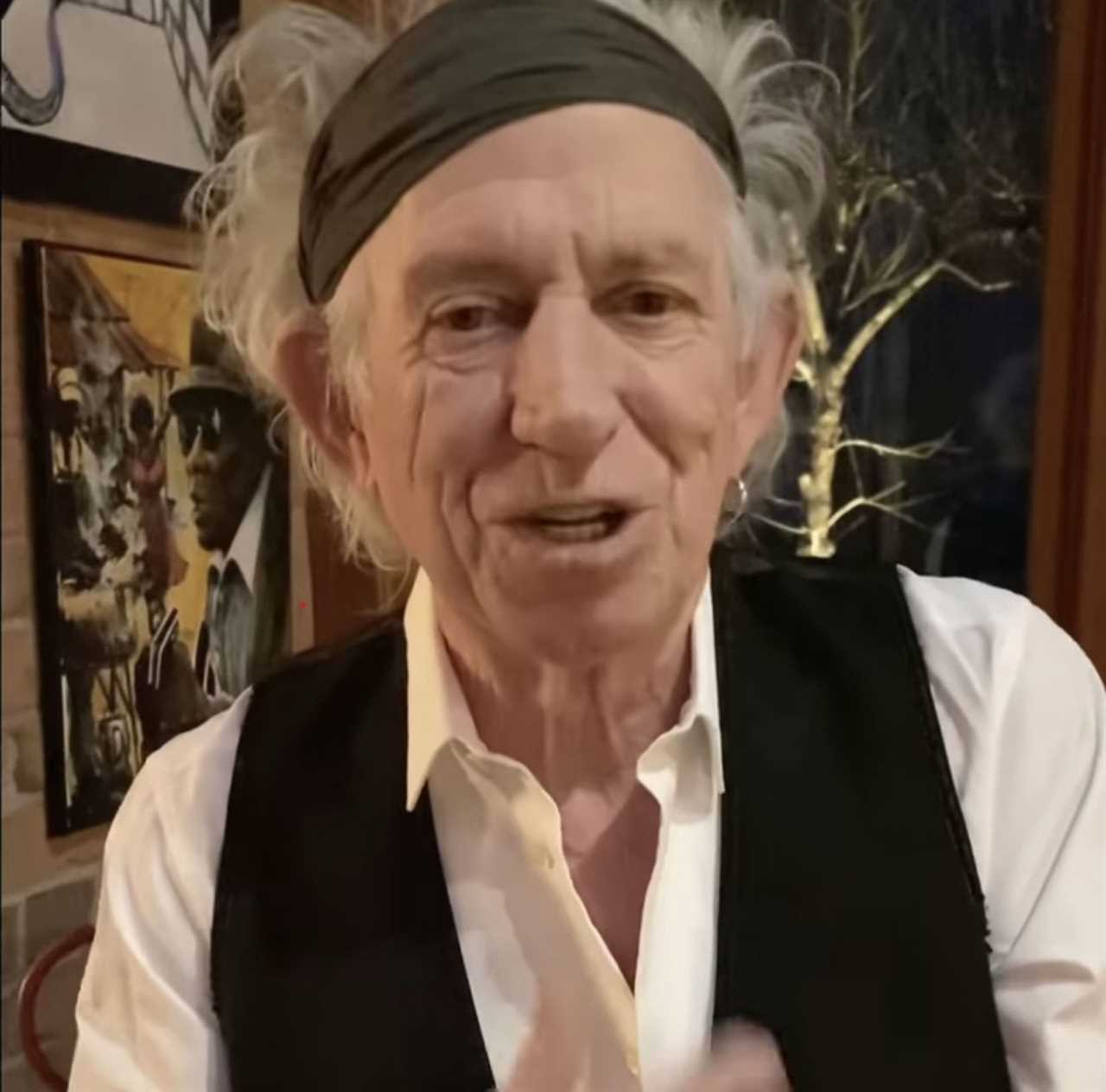
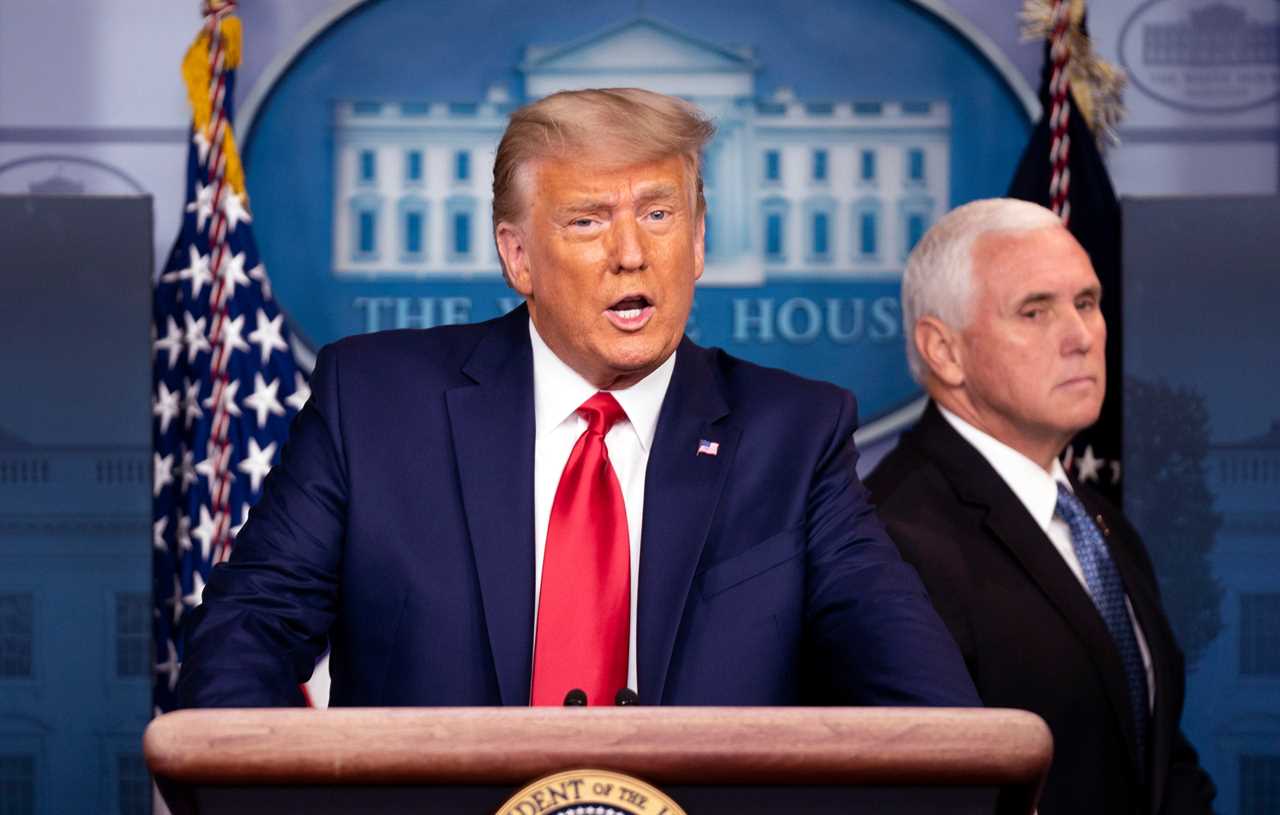
Lockdown taught us that life can’t be lived online.
Even as I answer the door to the guy from Amazon or Deliveroo or Ocado, I can’t help believing that we are social creatures who crave contact with other human animals. We need each other.
The relief of not spending hours every day on overpriced, filthy public transport masked an eternal truth — without regular human contact, happiness rapidly declines.
After a year of being locked down, we are desperate for the pause button to be turned off so our lives can begin again.
But will you still have a job when lockdown ends? Will your son or daughter catch up on the education they have missed? Has your physical and mental health declined because of this past year?
And there are increasingly loud demands for an inquiry into the way we dealt with coronavirus.
MISTAKES WERE MADE
In one of the greatest emergencies in our national history, what did we get wrong? What did we get right? What can we do better next time?
Mistakes were clearly made. Lockdown was too slow in happening, our borders were too open for too long, our frontline NHS workers did not get the PPE kit they needed fast enough.
But the vaccine rollout has been an astonishing, unprecedented national triumph, with 26million Brits now vaccinated, even as a third wave sweeps across Europe.
EU countries, driven by bitterness over Brexit rather than the health of their people, would rather see them die than admit that the UK has succeeded with its Oxford/ AstraZeneca jab.
The United States, inflamed by Donald Trump’s “China virus” rhetoric, has witnessed nearly 4,000 attacks on Asian-Americans this year, including six women slaughtered in Atlanta this week.
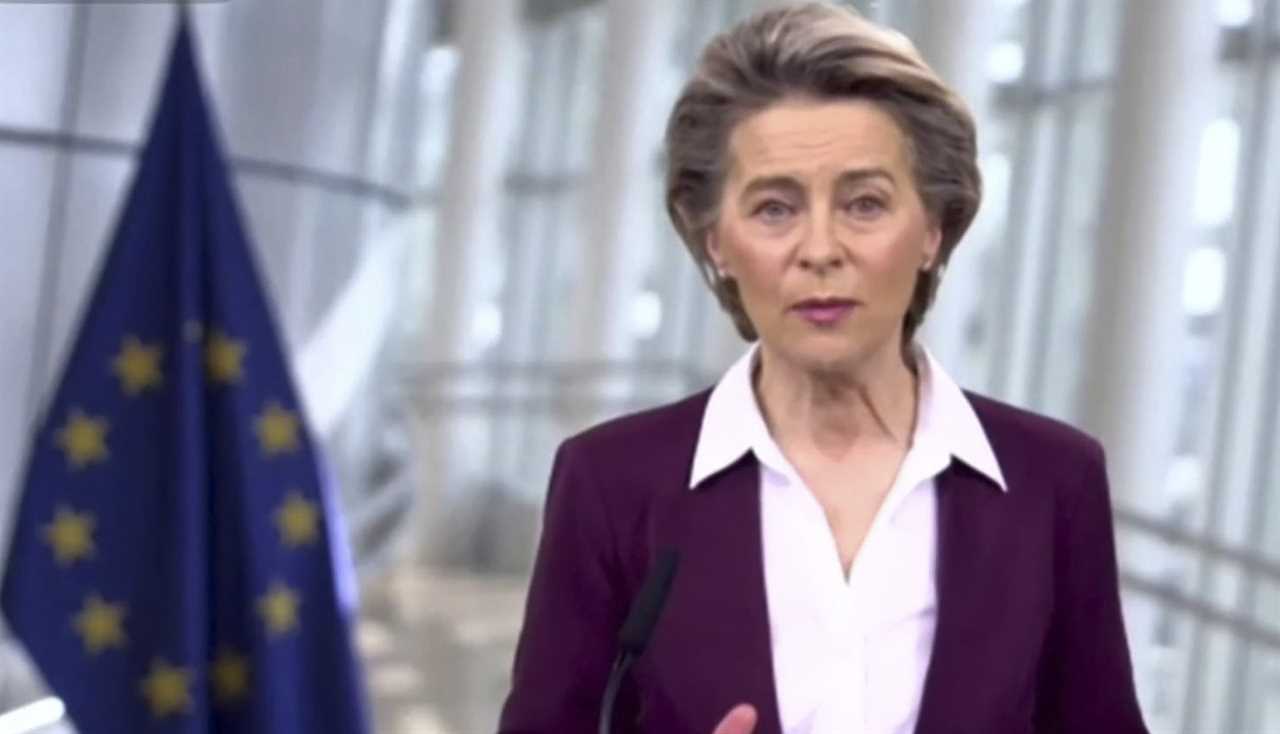
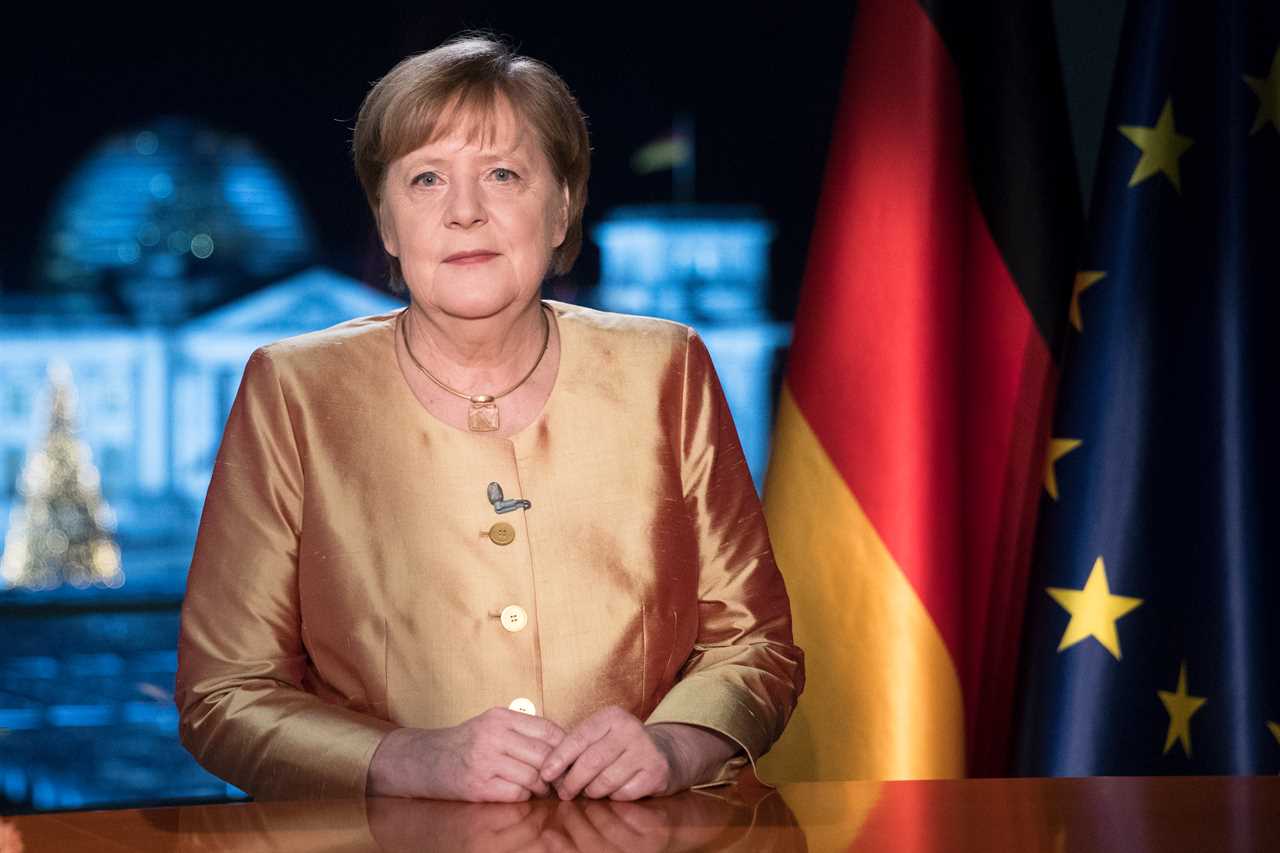
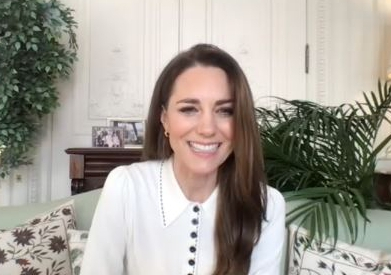
But the hardest year will echo through all our lives.
It has inflicted scars that we will carry to our graves. Jobs lost, cancer untreated, education ruined, futures stolen, £407billion of taxpayers’ cash spent saving the economy.
And above and beyond it all, the long list of our dead and all the families who were torn apart.
And yet there is optimism abroad here, that we have survived and will yet thrive, that our economy will boom and liberty will return.
We increasingly feel good about the future, you can feel it in your blood when you get that first vaccination.
The critics always say Boris over-promises and under-delivers, but even changed by his brush with death, a militant optimism is the nature of the man.
An inquiry will predictably howl for his tousled head. History will be kinder in its verdict. And so will the British people.
We elected Boris Johnson to get Brexit done. And then we asked him to keep us alive.







